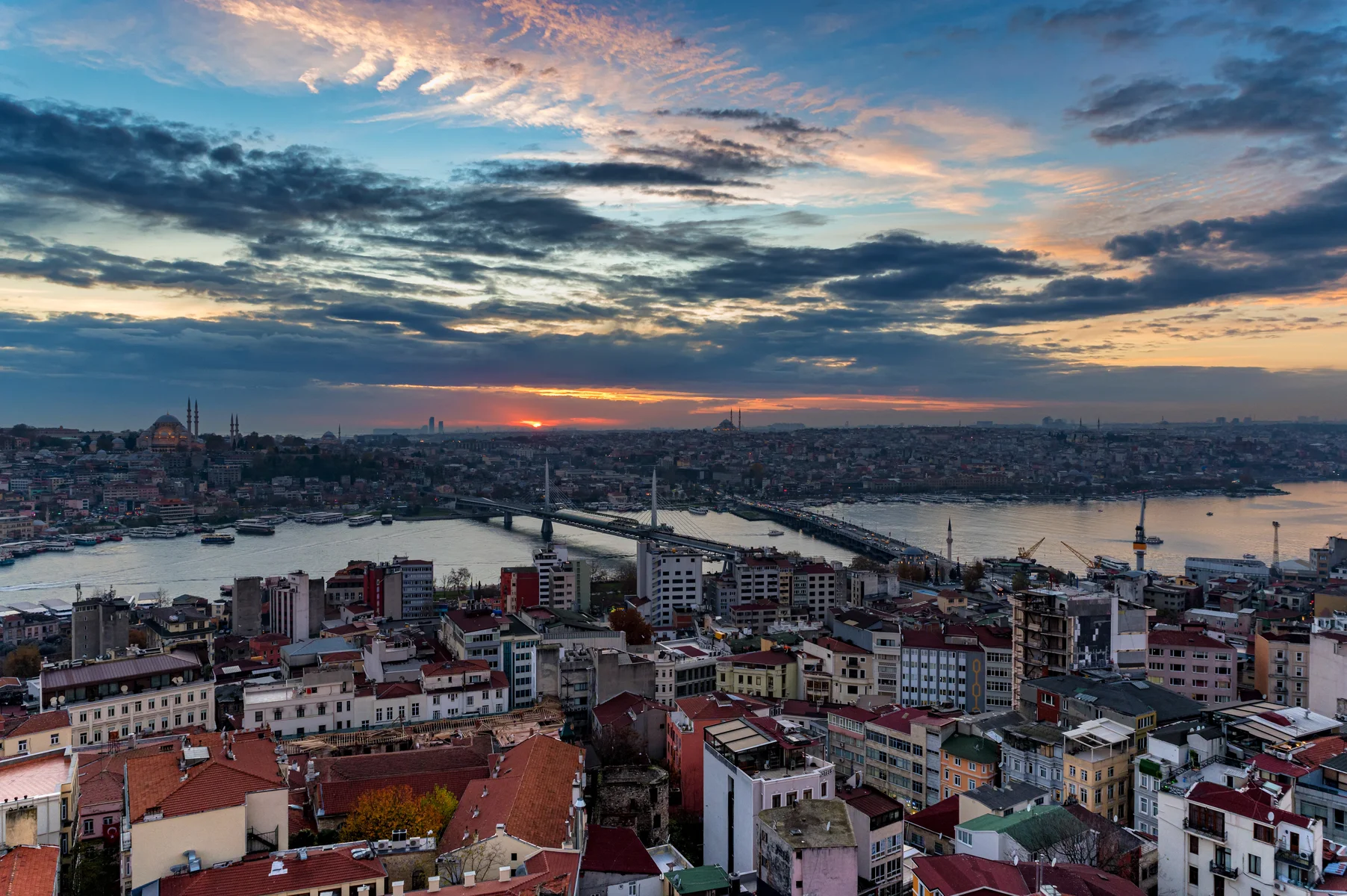
Buying Real Estate in Turkey: What You Need to Know Before the Deal
Turkey is bordered by four seas: the Mediterranean, the Aegean, the Sea of Marmara, and the Black Sea. The long coastline, combined with prices lower than those in the EU, makes the country attractive for purchasing property by the sea.
However, the country is still experiencing an economic crisis, which drives inflation to incredible values of 30–40%. The cost of square meters increases, while the availability of real estate decreases.
But where there are downsides, there are also upsides. Investors quickly realized that purchasing an apartment in Turkey could be sold for 10–25% more just a year later. In this article, we will thoroughly explore how to buy property in Turkey and what is needed for this process.
Pros and Cons of Buying Property in Turkey
The purchase of real estate in Turkey attracts thousands of foreigners each year, mainly due to the prices. Compared to most European countries, they remain relatively affordable. For example, the cost per square meter of an apartment with a sea view in Antalya is $1000–1500, while in Spain or Italy, the price for similar properties would range from $2100 to $3150.
Other advantages:
- Opportunity to obtain residency. Purchasing property worth at least $75,000 opens the path to a residence permit, and investments from $400,000 lead to Turkish citizenship.
- High tourist potential. Despite the ongoing issues, the tourist flow to the country remains high, providing a solid base for investing in rental properties in Turkey.
- Diverse real estate market. Due to the varied landscape, Turkey offers properties for all tastes, from seaside villas to apartments on the plains and houses in the foothills.
Disadvantages:
- Fraud risks. Without thorough verification of documents through a reliable lawyer, one may encounter scammers selling properties without legal titles. There are also cases where a property is sold at a very attractive price but actually belongs to a third party.
- Currency fluctuations. High inflation negatively affects the cost of maintaining property and rental income, but only when converted to foreign currency.
- Additional maintenance costs. Taxes, utility payments, and maintenance fees (aidat) for residential complexes are quite high, especially for luxury properties.
Property Prices in Turkey
Real estate prices in Turkey remain relatively low, with high investment potential. However, determining the exact cost is difficult, and the prices provided are highly generalized due to market fluctuations.
Real estate prices in Turkey:
|
Category |
Region |
Average Price (USD) |
|
1+1 Apartment (new build) |
Antalya |
90,000–130,000 |
|
3+1 Villa |
Alanya |
170,000–280,000 |
|
Apartment in City Center |
Istanbul |
140,000–220,000 |
|
Secondary Housing |
Izmir |
60,000–100,000 |
|
1+1 Apartment (new build) |
Bodrum |
120,000–180,000 |
|
3+1 Villa |
Fethiye |
200,000–300,000 |
|
Apartment in City Center |
Ankara |
80,000–120,000 |
|
2+1 Apartment (new build) |
Mersin |
70,000–110,000 |
|
Secondary Housing |
Bursa |
55,000–90,000 |
Additional transaction costs amount to about 4–6% of the property’s price, plus annual taxes, which range from 0.1–0.3% of the cadastral value. Property prices in resort areas are growing faster due to increased demand, while the real estate market in northern and northeastern parts of Turkey is more stable.

Obtaining Residency or Citizenship
According to Turkish law, purchasing real estate in Turkey is available to citizens of countries with which Turkey maintains diplomatic relations. Foreigners cannot buy property in zones classified as military or strategic (for example, certain areas of the Black Sea coast).
In general, the local market is open to everyone except for citizens of Syria, Armenia, North Korea, and Cuba, who are not allowed to acquire property. However, this restriction can be bypassed by purchasing property through a legal entity.
The key document in real estate transactions is the Turkish TAPU. This is the official certificate of ownership issued by the Directorate of Land Registry and Cadastral Affairs (Tapu ve Kadastro Genel Müdürlüğü). It confirms that you are the legal owner of the property and contains information about both the property and the owner. For foreigners, TAPU is processed the same as for Turkish citizens, with one difference: a tax number (Vergi Numarası) must be obtained first.
The tax number is required for identifying a foreigner in the Turkish tax system. Without it, transactions are considered invalid.
It can be obtained online through the Turkish Tax Authority website or by visiting the nearest tax office (Vergi Dairesi) in Turkey. The number is issued once and is valid indefinitely.
Residence Permit Through Property Purchase
Purchasing real estate in Turkey grants the right to a short-term residence permit (İkamet İzni). In addition to the main condition of property worth at least $75,000, there are other details to consider:
- The property must be listed in TAPU and registered in the applicant’s name.
- The residence permit is issued for 1–2 years with the possibility of renewal as long as ownership is maintained.
- All family members of the owner (spouse and children under 18) can apply for residency, but only if they are listed in the application.
- As of 2023, purchasing property, for example, in Istanbul, is not sufficient for obtaining a residence permit. The list of cities and districts with such restrictions is updated regularly, so it is advisable to check for any bans before buying.
To obtain the residence permit, the following documents are required: a copy of TAPU, a passport, health insurance, a bank statement (proof of financial capability), and several other documents. The process takes from 2 to 4 weeks.
To obtain Turkish citizenship through investment, one must invest $400,000—$500,000 in the country’s economy. The property must be purchased from a Turkish citizen or a Turkish company, and the transfer of ownership must be recorded in TAPU. The investment amount must be confirmed by an official valuation (expert evaluation) determined by certified specialists. Their assessment may not match the market price of the property.
The process takes 3 to 6 months and includes document submission (passport, TAPU, certificate of no criminal record, etc.), security checks, and final approval. After obtaining citizenship, the property must be held for at least 3 years.
Real Estate Purchase Process in Turkey
As in other countries, the first step in purchasing property in Turkey is choosing the right property. You can search on your own, but due to the risks of fraud, it is better to contact a real estate agent or agency.
Subsequent steps:
- Property verification. The agency checks the authenticity of the seller’s ownership and property documents. If searching independently, you need to verify:
- TAPU for encumbrances (mortgage, arrest, debts).
- Land status, presence of construction permits, encumbrances, or disputes over rights.
- No outstanding utility bills or taxes. It’s best to leave this step to a lawyer, preferably one experienced with foreign clients.
- Signing a preliminary agreement. If the seller is clear, both parties sign a preliminary sales agreement, which includes:
- Property price.
- Deposit amount (usually 5–10% of the total, paid to the seller’s account). The deposit is non-refundable if the buyer cancels the deal without a valid reason, but it is refunded double if the seller cancels the deal.
- Terms and deadlines of the final deal. The agreement is notarized to confirm the intentions of both parties.
- Completing the transaction. A final sale agreement is signed. After this, the full deposit is transferred to the seller’s bank account, either from abroad or from your Turkish account.
- Submitting documents to the land registry. Both parties submit documents to the Land Registry Directorate (Tapu Müdürlüğü), where the ownership transfer is registered.
After payment and registration with the land registry, you will receive the TAPU. However, if additional checks are required, it may take several days to issue it. From this moment, the property officially belongs to you, and you can use it as you wish—live in it, rent it out, or apply for residency or citizenship.
Additional expenses:
- Purchase tax of 4% of the cadastral value.
- Notary services cost around $100–200.
- Translator services cost $50–100 (mandatory for transactions with foreigners).
- The agent’s commission is 2–3% of the transaction amount.
- Utility connections (electricity, water) cost around $200–300.
FAQ on Buying Real Estate in Turkey
Do I need a lawyer to purchase a property in Turkey?
Participation of a lawyer is not mandatory, but it is strongly recommended for foreigners. A lawyer will help verify the legal cleanliness of the property (TAPU, encumbrances, debts), draft contracts, and avoid fraud. Without professional support, you risk facing issues that could result in costly legal battles, much more expensive than the $50–100 lawyer’s commission.
How long does it take to issue TAPU?
If all documents are ready and the payment is confirmed, the issuance of TAPU takes a few hours. The process may stretch to several days only if land registry specialists suspect issues with the transaction or property. The registration at the land registry office occurs on the day of the deal, but the overall purchase process (from search to receiving TAPU) can take 1–3 months.
Can I purchase property remotely?
Yes, you can purchase property remotely by issuing a power of attorney to a representative (real estate agent, lawyer, or acquaintance). This can be done through the Turkish consulate in your country. The representative will conduct the transaction on your behalf, including signing the contract and receiving the TAPU. The key is to transfer the money in advance and agree on all the details.
What documents are needed to open a bank account?
To open an account in a Turkish bank, you will need: a passport, a tax number (Vergi Numarası). In rare cases, they may ask for proof of address (for example, a utility bill from your country) and a purchase agreement (if the account is being opened for a transaction). The entire process takes 1–2 days.
Author
I write informative articles about real estate, investments, job opportunities, taxes, etc.

















